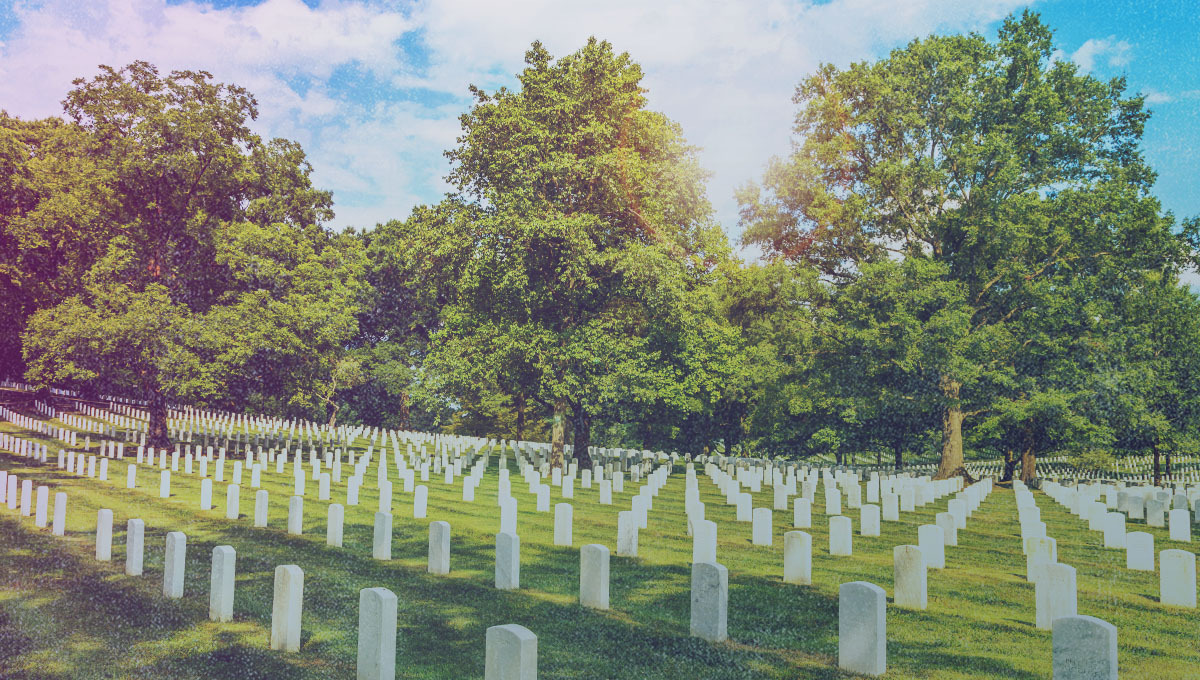There are certain scenes from movies that so move us emotionally that we never forget them. For me, it’s a scene in Stephen Spielberg’s Saving Private Ryan.
Most of us think about the dramatic opening 30 minutes, where we see the courage of US troops storming Omaha Beach in France in WWII. But I think the most memorable part is the final scene in which Private Ryan, as an older man, stands at the grave of Captain Miller, who died saving his life in the movie.
Reflecting on Captain Miller’s sacrifice, Private Ryan says to his wife, “Tell me I’ve lived a good life. Tell me I’m a good man.”
Have I lived a good life?
It’s a good question, isn’t it? One that we should be asking ourselves.
This question is a reminder for each of us: take stock of your life so you don’t waste it. And the Bible encourages us to do the same thing.
The book of Ecclesiastes reminds us that you can’t stop time. Death comes for all of us at some point. (Last time I checked, the death rate is still 100 percent.) Because of this, we should stop and think every now and then about our own death and how we should live in light of it.
In fact, the whole book of Ecclesiastes reads as if the author is sitting down with you over a cup of coffee or beer, saying: “Let me share some wisdom with you, some decisions you can make now, so that you don’t play the fool because death comes to us all.”
Good Advice in Ecclesiastes
What wise advice does Ecclesiastes hold?
Ecclesiastes 7:1 says, “A good name is better than precious ointment…” What’s a good name? A good reputation—how others think of us in terms of our character and conduct.
After all, who cares how good you look on the outside, if when your name is mentioned, everyone rolls their eyes? What matters most in life is character.
In other words, are we people who have depth, who don’t care so much about the superficial? Are we people who do the right things even when they’re hard and no one is looking? Loving people, servant-hearted people, kind people, people who take an interest in others?
Having done many funerals over the years and having listened to people share about those who’ve passed away, I can tell you that these are the kinds of people we respect in life.
Ecclesiastes reveals that funerals can be the best preachers. They remind us that one day this is going to be me and you, and they force us to deal with the reality of our present choices and subsequent character.
But shockingly, the author notices there are two types of people who might attend a funeral.
The fool sits there and thinks that it’s a really grim experience and wants to go home and get back to trivial things on Twitter (my translation). And maybe get back to numbing life’s problems away so he doesn’t have to take stock of his life.
But the wise person thinks: What will people be saying about me when that time comes? How will my character be remembered? Will they tell me I lived a good life?
This type of reflection encourages us to focus on the things that really are important in life. Relationships with those we love. Not living with regrets, wishing you’d spent more time with them, or you’d forgiven and worked through that unresolved conflict.
It also encourages us to not live selfishly. To understand that God didn’t put us on this earth so that the world would revolve around us. Instead, God wants us to invest our time and our talents and money to build his kingdom.
The Difference Jesus Makes
But funerals have a way of highlighting one final thing, maybe the most important…
They force us to think about eternity and our relationship with God.
The final two verses of Ecclesiastes allude to this,
“Now all has been heard:
Here is the conclusion of the matter:
Fear God and keep his commandments,
For this is the whole duty of man.
For God will bring every deed into judgment,
including every hidden thing, whether it is good or evil.”
Ecclesiastes 12:13-14
No matter how good we try to be, even our best efforts fall short of God’s glory. We worship and live for things in life other than our Creator. And this passage soberly reminds us that one day we will have to give an account for how we loved and lived.
But the message of the gospel is that our hope isn’t in our own goodness. It’s in Jesus, who lived a perfect life and died in our place on a cross to pay for our sins.
All of our sins. The secret and the public. The sin that haunts us that we wish we could take back but know we can’t. He died for those sins so that we could be forgiven and reconciled to God.
The great thing is you don’t have to wait for the next funeral to heed the wisdom of Ecclesiastes. You can stock now.
What does your character and reputation say about what you are living for? What does your eternal future look like?
If you’ve placed your hope in Jesus, you will keep growing in character. And you can know that your future is secure.
This hope enables you to be ready for the next funeral, even if it’s your own.
In a world full of distractions, it is can hard to slow down and focus on Jesus. Find out how you can make practical changes to grow in your relationship with him.


